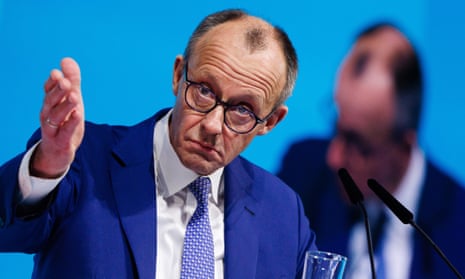Tens of thousands sought to fight back in recent weeks, taking to streets across Germany to protest against the far right and the AfD’s co-leader, Alice Weidel, as she backed the mass deportation of migrants and peddled a party whose ranks include members who have played down the horrors of the Holocaust and chapters that have been designated as “rightwing extremist” by security authorities.
He contextualised the AfD support within the wider, global surge of backing for rightwing populists – a link reinforced during the election as Elon Musk used his influence to tout the AfD, describing it as the only party able to “save Germany.”.
“I would say the AfD is the ridiculous monster our period needs to have,” said Willi Schultz, 32, in a reference to the oft-cited quote attributed to Antonio Gramsci: “The old world is dying, and the new world struggles to be born: now is the time of monsters.”.
Preliminary results suggested that although the conservative CDU/CSU bloc had won the largest share of the vote (29%), likely to be the second force in the parliament was the far-right Alternative für Deutschland (AfD), which garnered about 20% of the vote.
His willingness to do so, and the election result – in which the AfD nearly doubled its share of votes from 2021 – have added to concerns about the influence the far-right party could have in Germany’s parliament.














.jpg?auto=webp&width=800)
















